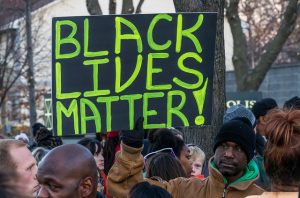
Deanna Vandiver, Executive Director for the Center for Ethical Living and Social Justice Renewal (New Orleans, LA), recently challenged her readers to recognize their “spiritual responsibility for a moral tomorrow.” That responsibility means taking action to
- insist that Black Lives Matter
- respect the gender spectrum and offer hospitality to everyone unlimited by their pronoun
- welcome the immigrant stranger as friend and work for #not1moredeportation
- fight for $15 and living wages for everyone
- support reproductive justice (RJ) – reality based sex ed, access to health care, climate justice, prison abolition, voting rights access, and more
So What?
While Rev. Vandiver is a Unitarian Universalist her proposals resonate with a much broader audience, including progressive followers of the Way of Jesus.
- If one’s faith does not take serious the needs of others on an individual level and the well-being of humanity on a systemic level, then it offers little or no hope for the transformation of the world.
- If one’s faith community does not both seek to equip its members (and all who participate in its shared life) while also providing opportunities to engage in the issues above, then it clearly cares more for those within than those beyond its walls.
- If one’s religious tradition or blend of many such traditions does not count all persons as equal, then it is more than likely a path created in your own image and likeness not one of the world’s many great religions.
Maybe it is time to stop and evaluate yourself and then your faith community.
- How well am I doing to live up to and in to my spiritual responsibility to create a moral tomorrow? (How well is my faith community doing in this area?)
- Which of the five actions is hardest for me? What is one way I can work on this growing edge? (Which of the five actions does my faith community not clearly support? How can I help change this?)